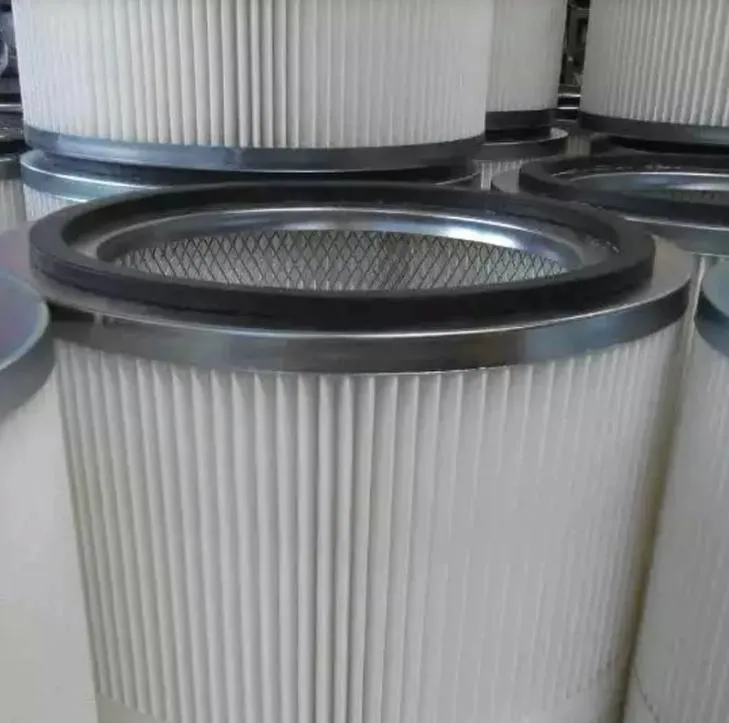 Tel:
+8615930870079
Tel:
+8615930870079
Dec . 23, 2024 11:14 Back to list
Regular Maintenance for Air Purifier and Cartridge Oil Filters
Filters are essential components of various systems, including air purifiers and cartridge oil filters, as they ensure that air and oil stay free from contaminants. However, just like any mechanical component, dust filter cartridges and cartridge oil filters can become clogged over time, leading to decreased efficiency and performance. When filters are clogged, they struggle to allow the proper flow of air or oil, which can cause overheating, decreased system effectiveness, and potential damage. The good news is that regular maintenance and timely replacement can prevent these issues, ensuring that both your air purifier cartridges and cartridge oil filters continue to operate efficiently.

How Dust Filter Cartridges and Oil Filters Contribute to System Efficiency
Dust filter cartridges and cartridge oil filters are designed to capture harmful particles, contaminants, and impurities, improving the air and oil quality within their respective systems. Air purifier cartridges help maintain clean, breathable air by removing dust, allergens, smoke, and other airborne particles. Meanwhile, cartridge oil filters are critical in automotive and machinery systems, where they filter out dirt and debris from the oil circulating through engines. In both cases, clean filters ensure smooth operation, prevent component damage, and contribute to the overall longevity of the system. Without clean, functional filters, the system's efficiency is compromised, and performance suffers.
Why Clogging Occurs and How to Avoid It Over time, dust filter cartridges and cartridge oil filters naturally accumulate contaminants, which can lead to clogging. For air purifiers, this means a build-up of dust, pet dander, or other airborne particles. In the case of cartridge oil filters, it’s debris, dirt, and contaminants from the oil that lead to clogging. As these filters become clogged, airflow or oil flow becomes restricted, resulting in reduced performance. This is why regular inspection and maintenance are so important—catching a clogged filter early can help avoid more serious issues, such as a decrease in system performance or complete failure. Timely replacement and cleaning ensure that your systems continue to run smoothly without interruption.
The Role of Timely Replacement in Maintaining System Performance
One of the most effective ways to prevent clogging and maintain optimal performance is by replacing your dust filter cartridges and cartridge oil filters on a regular basis. Depending on the type of system and the level of usage, filters may need to be replaced every few months or after a certain number of operating hours. Checking manufacturer recommendations for replacement schedules can provide helpful guidelines. Timely replacement helps avoid the build-up of contaminants and keeps the system functioning at peak efficiency. When you neglect to replace clogged filters, you risk reducing the overall lifespan of the equipment and decreasing its performance in the long run.
How Regular Maintenance Improves Air and Oil Quality
Proper maintenance isn’t just about replacing filters; it also involves regular inspections and cleaning. Regularly cleaning air purifier cartridges and cartridge oil filters can help prevent build-ups from becoming too severe. For dust filter cartridges, this might mean vacuuming or washing the filters according to the manufacturer's instructions. In automotive systems, cleaning or flushing the cartridge oil filters is essential to remove any trapped particles. By maintaining clean filters, you ensure that the air remains fresh, oil remains clean, and your systems run efficiently. Regular maintenance reduces the chances of failures, keeps the equipment running longer, and enhances overall performance.
Maintaining Clean Filters for Optimal System Efficiency
The importance of maintaining clean and functioning dust filter cartridges and cartridge oil filters cannot be overstated. Regular maintenance and timely replacements help to prevent clogging, ensuring that both air purifiers and machinery run smoothly. By avoiding clogged filters, you improve airflow or oil circulation, enhancing performance and extending the life of the system. Whether you're dealing with air purifier cartridges to improve air quality or cartridge oil filters for your engine, taking proper care of these components is essential for maintaining overall efficiency. Make sure to follow maintenance schedules and replace filters regularly to prevent downtime, reduce repairs, and optimize system performance.
-
Types and Applications of Air Filtration CartridgesNewsJul.28,2025
-
The Role of Gas Turbine FiltersNewsJul.28,2025
-
Mastering Air Filter Cartridge UseNewsJul.28,2025
-
Advanced Turbine Filters for Modern Gas TurbinesNewsJul.28,2025
-
Cellulose Air Filter Cartridge Advantages in Dust FiltrationNewsJul.28,2025
-
Cellulose Filters for Air Particle ReductionNewsJul.28,2025

 Email:
Email:





